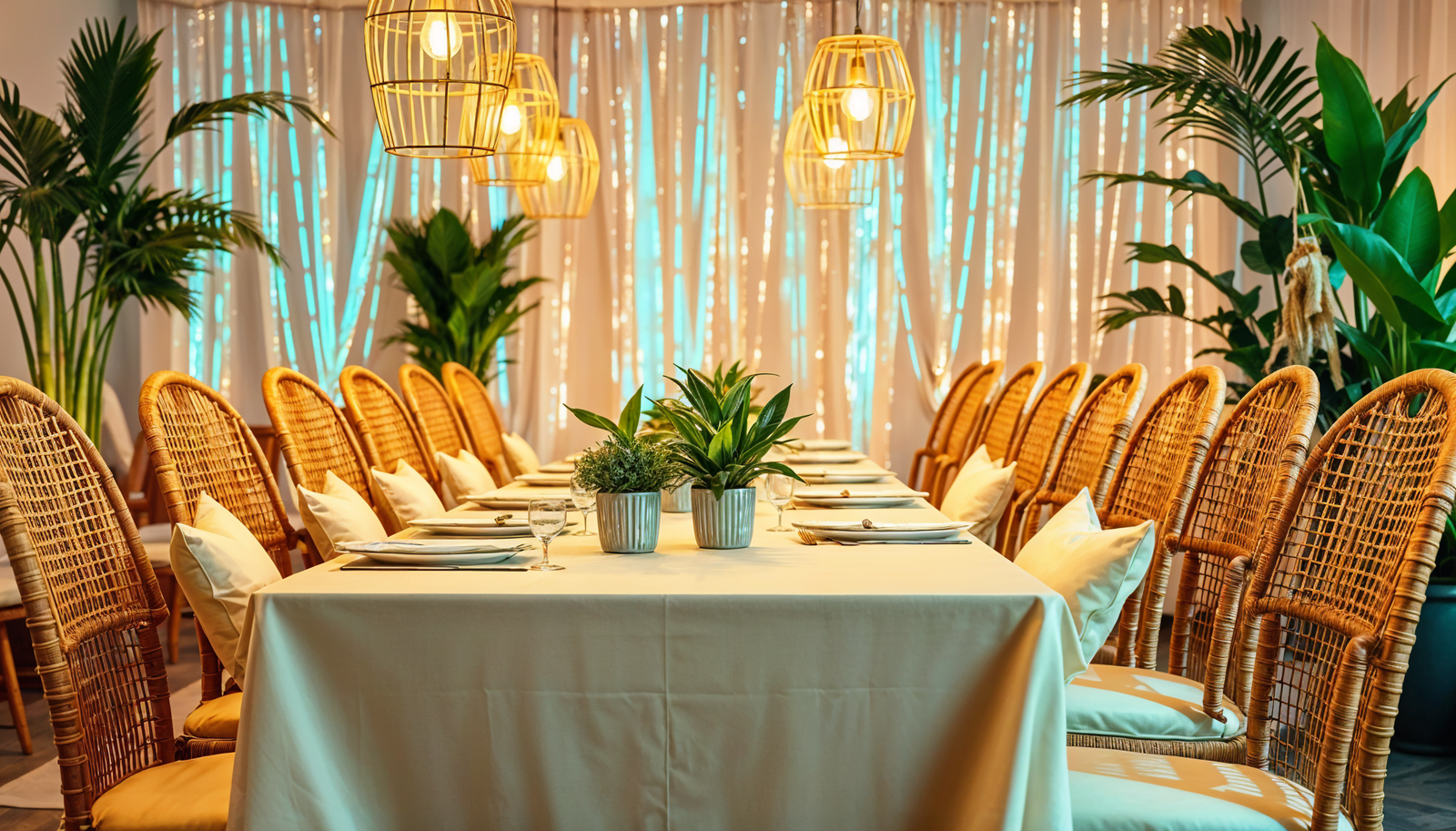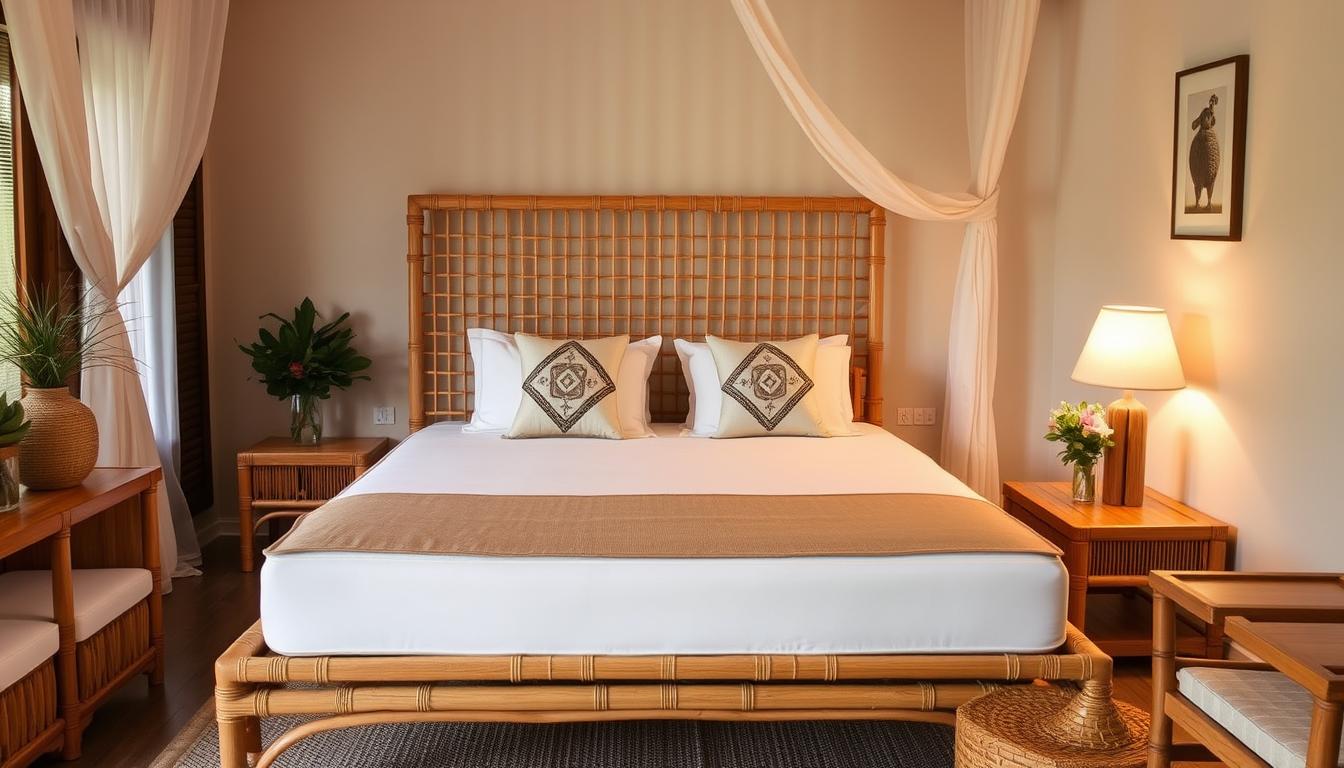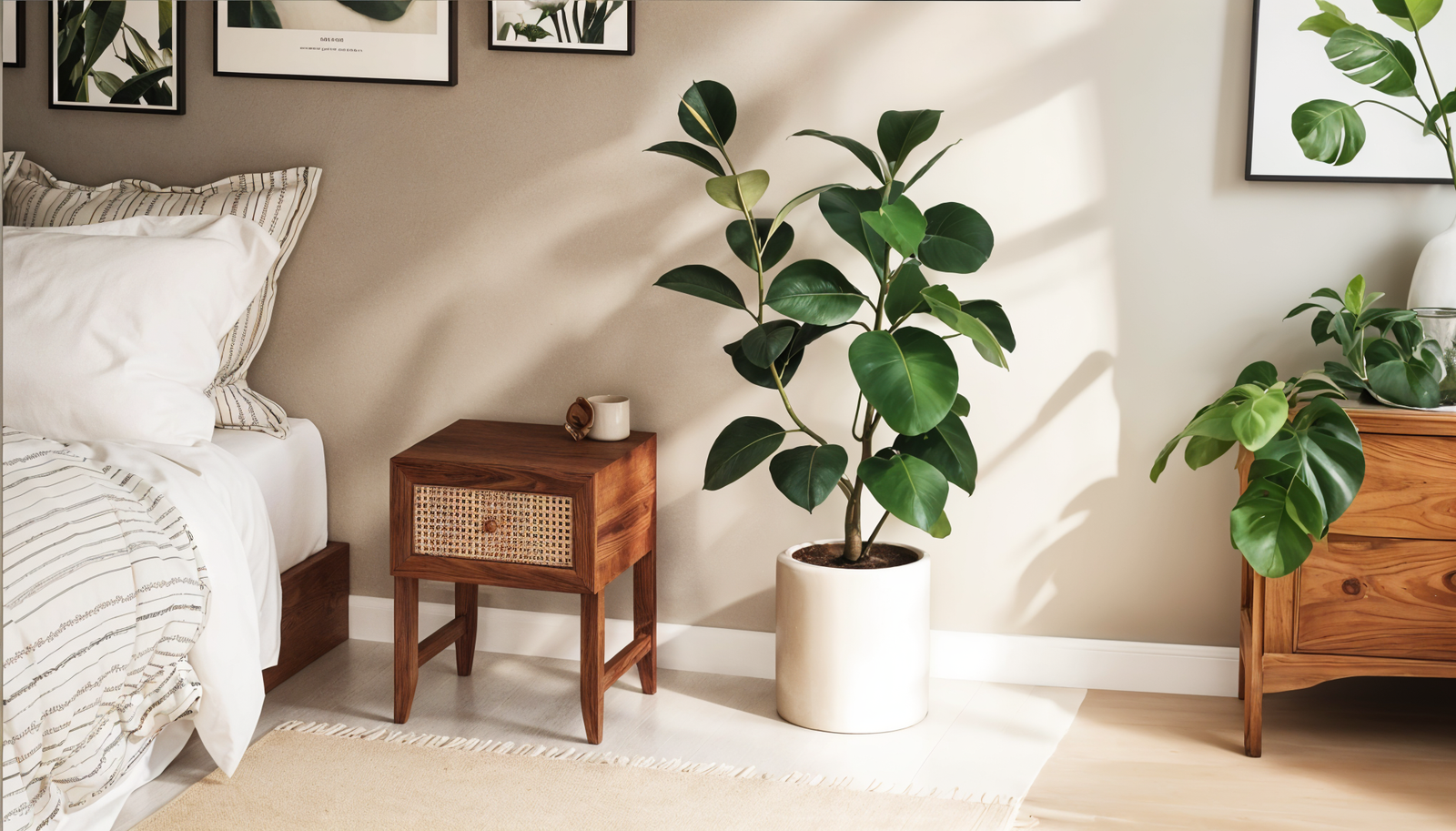🤍 Unmatched Quality, Authentic Craftsmanship
🤍 Unmatched Quality, Authentic Craftsmanship
🤍 Unmatched Quality, Authentic Craftsmanship
Welcome to our Japandi Style Guide! Are you drawn to the minimalist yet warm interiors of Japandi design?
Japandi is a beautiful fusion of Japanese and Scandinavian styles, blending the essence of both cultures into a harmonious aesthetic.
In this guide, we will provide you with tips for achieving the Japandi look in your own space.
Creating a Japandi-inspired space involves embracing simplicity, functionality, and natural materials.
By incorporating essential elements of the Japandi look, you can achieve a balance between East and West, resulting in a tranquil and cohesive aesthetic.
Whether you're a fan of Scandinavian minimalism or Japanese craftsmanship, Japandi design offers a versatile and elegant style that suits modern homes.

The Japandi aesthetic is a fusion of Japanese and Scandinavian design principles.
Both styles emphasize minimalism and functionality, but they also incorporate unique elements.
Japanese design focuses on simplicity, natural materials, and a sense of harmony with nature. Scandinavian design, on the other hand, emphasizes clean lines, practicality, and cozy elements.
When creating a Japandi interior, it's important to embrace both minimalism and functionality while incorporating elements of nature such as natural materials, plants, and natural light.
Japanese design principles revolve around minimalism, often referred to as "less is more." It embraces simplicity, clean lines, and a sense of tranquility.
Scandinavian design principles, on the other hand, prioritize functionality, practicality, and a cozy atmosphere.
When blending these two design philosophies, the result is a harmonious combination that represents the essence of Japandi style.
It balances the Zen-like simplicity of Japanese design with the functional and cozy elements of Scandinavian design.
Minimalism is a core principle in both Japanese and Scandinavian design.
It focuses on decluttering and creating a clean, streamlined space.
By removing unnecessary items and simplifying the design, Japandi interiors promote a sense of calm and serenity.
Functionality is another important aspect of Japandi design. Scandinavian design is known for its practicality, making use of every inch of space.
Combining this with Japanese design's emphasis on simplicity and practicality, Japandi interiors feature furniture and decor that serve a purpose while maintaining a minimalist aesthetic.
A key element of the Japandi aesthetic is the incorporation of nature into the design.
Japanese design philosophy embraces a deep connection with nature, often incorporating natural materials in japandi design such as wood, bamboo, and stone.
Scandinavian design also values natural materials, creating a warm and inviting atmosphere.
In Japandi interiors, natural materials are used abundantly. From wooden furniture to woven textiles, these organic elements add warmth and texture to the space.
Plants and natural light are also essential in creating a sense of harmony and bringing the outdoors inside.
Japandi style offers a sense of calm and simplicity that resonates with modern homes.
In our fast-paced and cluttered world, the minimalism and functionality of Japandi design create a harmonious and clutter-free environment.
This style embraces the principles of Japanese minimalism and Scandinavian functionality, combining the best of both worlds.
Japandi design is particularly appealing to modern homeowners because it creates a tranquil and serene atmosphere.
The use of natural materials such as wood, bamboo, and natural fibers brings a sense of nature indoors.
This connection with the natural world helps to create a peaceful and inviting space, allowing homeowners to escape from the stresses of daily life.
The clean lines and simple forms of Japandi design also contribute to its popularity in modern homes.
This minimalist approach not only creates an aesthetically pleasing environment but also promotes a sense of clarity and simplicity.
The functionality of Japandi design ensures that every element of the space serves a purpose, allowing for efficient and organized living.
In summary, Japandi style resonates with modern homes because it offers a calm and clutter-free environment, embraces natural materials, and promotes simplicity and functionality.
By incorporating Japandi design principles into their homes, homeowners can create a harmonious and tranquil space that enhances their well-being and allows them to truly relax and unwind.
To achieve the Japandi look in your living space, you need to start by decluttering with purpose.
Remove unnecessary items and create a clean and organized environment.
Next, choose low and functional furniture that fits the Japandi aesthetic.
Opt for pieces with clean lines, minimal ornamentation, and multi-functional features.
Emphasize quality over quantity by investing in well-crafted furniture and accessories that will stand the test of time.
Crafting a Japandi interior involves incorporating essential elements that define the style.
By carefully selecting and combining these elements, you can create a cohesive Japandi interior that exudes tranquility and simplicity.
The essential elements of a Japandi interior include:
By integrating these essential elements into your Japandi interior, you can create a space that reflects the minimalist yet warm aesthetic of Japandi design.

Choosing the right color palette is crucial to creating a Japandi space.
To achieve the serene and balanced aesthetic of Japandi design, we recommend opting for neutral hues as the foundation of your color scheme.
Whites, grays, and beige create a clean and minimalist backdrop that allows other elements to shine.
These neutral tones evoke a sense of calm and tranquility.
While neutral hues form the basis of the color palette, it's important to incorporate subdued accents to add depth and interest to the space.
Soft shades of blues, greens, browns, and other earth tones work well as accent colors in Japandi interiors.
These muted shades bring a subtle pop of color while maintaining a serene ambiance.
For those seeking a touch of contrast in their Japandi spaces, consider strategically incorporating darker tones.
Blacks and deep browns can be used sparingly to create visual interest and depth in specific areas.
Use darker tones in furniture, accessories, or accent walls for a striking yet harmonious balance.
In Japandi design, we celebrate the artistry of craftsmanship and the use of quality materials.
Embracing handcrafted furniture and accessories allows us to showcase the skill and dedication of artisans.
By choosing sustainable materials such as wood, bamboo, and natural fibers, we not only create visually appealing spaces but also bring a sense of nature and authenticity into our homes.
When it comes to Japandi design, the focus is on using materials that are durable and have a timeless appeal.
Quality materials not only enhance the overall aesthetics of the space but also ensure that our interiors stand the test of time.
By valuing craftsmanship and selecting high-quality materials, we can create a Japandi interior that is both visually stunning and long-lasting.

So, whether it's a beautifully hand-carved wooden table or a meticulously woven rattan chair, each piece in a Japandi interior serves as a testament to the artistry and dedication of its maker.
By celebrating craftsmanship and incorporating quality materials, we can create spaces that reflect our appreciation for beauty, functionality, and the harmonious blending of Japanese and Scandinavian design principles.
In Japandi design, achieving a harmonious balance between ornamentation and function is essential.
It involves mixing east and west in home decor to create a cohesive and visually appealing space.
To strike this balance, we recommend incorporating timeless furniture pieces and utilitarian objects as decor.
When selecting furniture for your Japandi-inspired space, opt for pieces that possess both aesthetic appeal and durability.
Investing in timeless furniture ensures that your interior will remain stylish and relevant for years to come.
Look for clean lines and minimal ornamentation, as these characteristics align with the minimalist nature of Japandi design.
Utilitarian objects can serve as both functional and decorative elements in Japandi design.
By incorporating objects that have a purpose, such as storage baskets, wall hooks, or ceramic vessels, you can enhance the functionality of your space while adding visual interest.
These objects should align with the overall aesthetic, featuring natural materials and simple designs.
Textural contrast is an essential element in creating a visually striking Japandi room.
By incorporating a variety of textures, you can add depth and interest to your minimalist decor.
One way to achieve this is by using luxurious textiles that evoke a sense of warmth and comfort.

To enhance the tactile experience in your Japandi room, consider incorporating luxurious textiles such as velvet, silk, and cashmere.
These materials not only add a touch of luxury but also contribute to the overall coziness of the space.
Use plush velvet cushions or a silk throw blanket to create a soft and inviting atmosphere.
The contrast between the smoothness of these textiles and the clean lines of the minimalist decor creates a visually pleasing balance.
To further enhance the ambiance of your Japandi room and bring a touch of nature indoors, incorporate natural accessories.
Wooden bowls, woven baskets, and ceramic vases are great options that add organic textures and visual interest.
These natural elements complement the minimalist decor and create a harmonious connection with the principles of Japandi design.
The combination of luxurious textiles and natural accessories creates a sophisticated yet approachable aesthetic.
Natural light plays a crucial role in Japandi design. To fully embrace this design style and create a well-lit and inviting space, there are several strategies you can employ to maximize natural light.
One effective way to maximize natural light is by incorporating reflective surfaces into your Japandi design.
Mirrors, polished wood, and glossy finishes can help bounce light around the room, making it feel brighter and more spacious.
Consider placing mirrors strategically to enhance the feeling of space and brightness.
By reflecting natural light, these surfaces can create a luminous and airy atmosphere in your Japandi-inspired space.

In addition to maximizing natural light, it's important to choose the right type of lighting fixtures to complement your Japandi design.
When selecting lighting fixtures, opt for natural materials such as brass, metal, rattan, or bamboo.
These materials align with the organic and nature-inspired aesthetic of Japandi design.
Consider incorporating pendant lights, floor lamps, or wall sconces that showcase these natural materials.
By selecting lighting fixtures that harmonize with your overall Japandi aesthetic, you can create a cohesive and visually pleasing space.
Incorporating plants into Japandi interiors is a key element of the design style.
Both Japanese and Scandinavian cultures have a strong connection to nature, and adding greenery brings a sense of life and tranquility to the space.
Choose plants that thrive in indoor environments and complement the minimalistic aesthetic.
Place them strategically to create focal points and add a touch of nature to your Japandi interior.

When looking for authentic Japandi pieces, there are several options available.
Check out local furniture stores that specialize in Scandinavian and Japanese design.
Online marketplaces and websites dedicated to Japandi style are also great sources for finding furniture and decor that embraces the Japandi aesthetic.
The recommended stores include Mojo Boutique to shop for authentic Japandi pieces.
Take your time to explore different options and find pieces that truly embody the Japandi style.
Creating a cohesive Japandi look requires us to combine the elements of Japanese and Scandinavian design in a harmonious way.
By carefully selecting a neutral color palette and strategically using darker tones for contrast, we create a balanced and serene atmosphere.
Celebrating craftsmanship and using quality materials allows us to appreciate the skill and artistry behind each piece.
Mixing ornamentation with function and adding textural contrast bring depth and visual interest to our minimalist decor.
Maximizing natural light and integrating greenery complete the Japandi look, enhancing the overall ambiance.
By embracing the core values of Japandi and creating a cohesive look with confidence, we can truly transform our living spaces into havens of tranquility and beauty.
The Japandi style is achieved by blending Japanese and Scandinavian design principles that resonate with modern homes.
With its focus on simplicity, functionality, and a respect for nature, Japandi design allows us to create minimalist yet warm interiors that stand the test of time.
So why not embark on this design journey and enjoy the benefits of living in a calm and harmonious environment?
Now that you have read the above article, maybe you still have a couple of questions on this topic, so we will answer these questions below.
Japandi style is a design style that combines the principles of Japanese minimalism and Scandinavian functionality.
It focuses on simplicity, functionality, a respect for nature, and quality craftsmanship.
The essential elements of Japandi design include minimalism, functionality, natural materials, a neutral color palette, clean lines, and a sense of harmony with nature.
You can start by decluttering your space and choosing low and functional furniture to create a harmonious japandi aesthetic.
Emphasize quality over quantity and select pieces that showcase craftsmanship.
Incorporate natural materials, clean lines, and a neutral color palette. Finally, embrace the principles of minimalism and functionality to create a cohesive Japandi interior.
You can shop for authentic Japandi pieces at local furniture stores that specialize in Scandinavian and Japanese design.
Online marketplaces and websites dedicated to Japandi style are also great sources for finding furniture and decor.
Some recommended stores include Mojo Boutique, Grain and Frame, and Finnish Design Shop.
In conclusion, embracing the core values of Japandi in our daily lives and creating a cohesive Japandi look allows us to bring a sense of tranquility and harmony to our homes.
By incorporating minimalism, functionality, natural materials, and a respect for craftsmanship, we can transform our living spaces into sanctuaries that reflect our personal style.
With confidence and a thoughtful approach to design, we can achieve the Japandi look and enjoy the benefits of this timeless and elegant aesthetic.
Embracing Japandi's core values in our daily lives means adopting a minimalist mindset and simplifying our surroundings.
By decluttering and removing unnecessary items, we create a sense of calm and order.
Choosing low-cost and functional furniture allows us to optimize our space, while emphasizing quality over quantity ensures that we invest in timeless pieces that will last.
Incorporating natural materials connects us with nature and promotes a sense of well-being.


